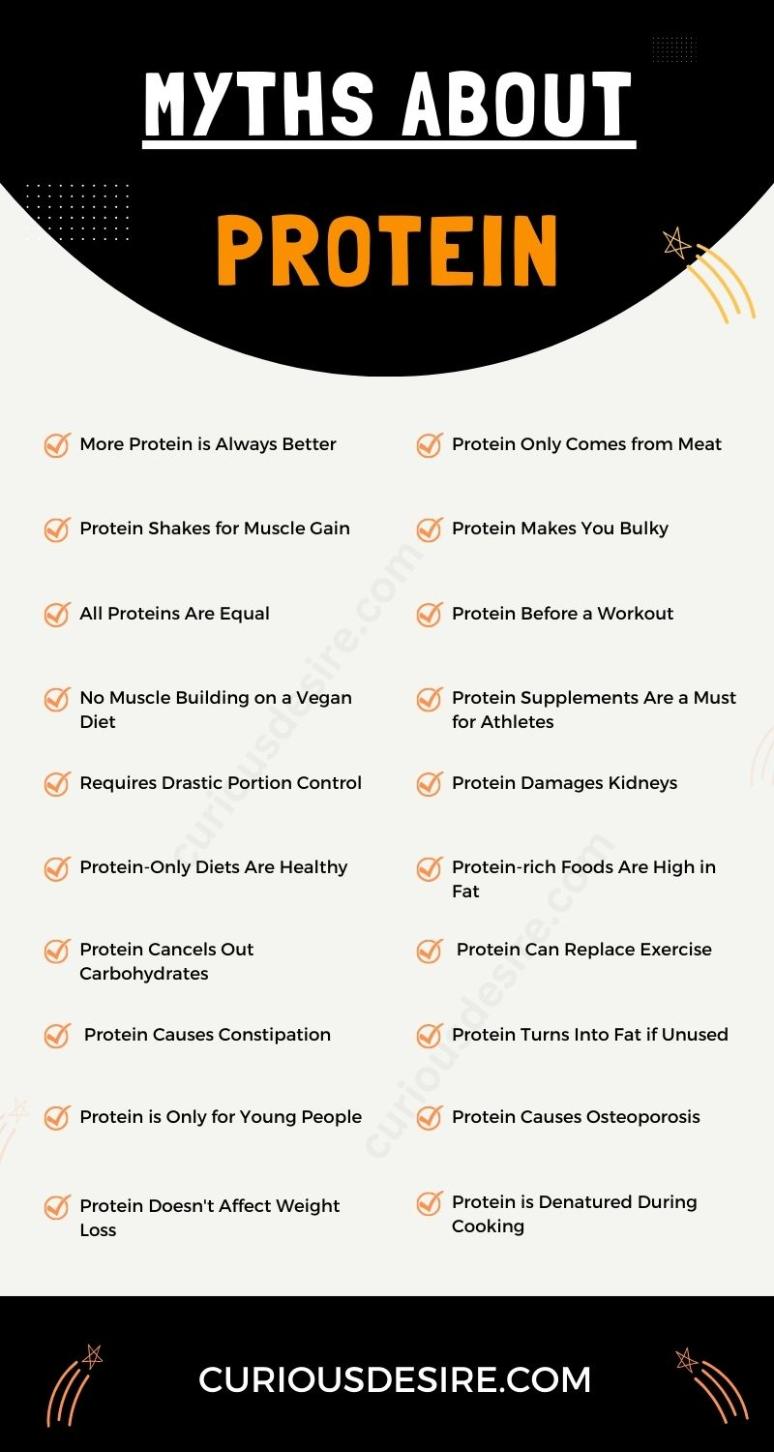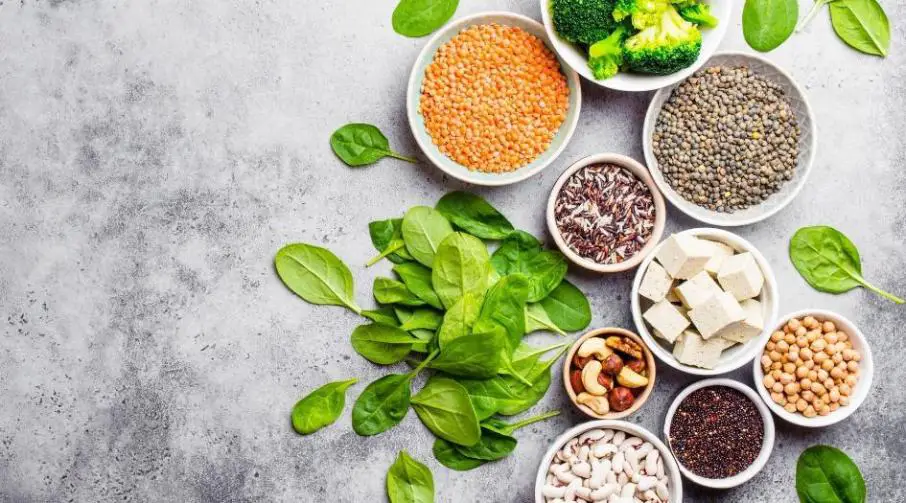Protein, an essential building block of our diet, often comes with its fair share of myths and misconceptions.
In this article, we’ll uncover the truths behind common myths about protein, providing clarity and a better understanding of its role in our daily nutrition.
5 Most Common Myths About Protein
- Protein Only Comes from Meat
- Protein Makes You Bulky
- All Proteins Are Equal
- Protein-Only Diets Are Healthy
- Too Much Protein Causes Constipation
[toc]

Myth 1: More Protein is Always Better
Why This Myth Exists:
People think that having more protein automatically means more muscle and better health.
They believe the idea that the higher the protein intake, the better the results, without considering the body’s limits on using protein.
Debunking the Myth:
Having too much protein doesn’t guarantee better muscles or overall health.
The body can only use a certain amount, and going over that limit doesn’t give extra benefits.
It’s important to have a balanced mix of different nutrients for the best health results.
Myth 2: Protein Only Comes from Meat
Why This Myth Exists:
This myth comes from the idea that only animal products provide top-notch protein.
Some believe plant-based protein isn’t as good or complete.
Debunking the Myth:
In reality, various plant-based foods are rich in protein, including beans, lentils, tofu, nuts, seeds, and grains.
Plant proteins can be as effective as animal proteins when strategically combined for a complete amino acid profile.
Likewise, a well-balanced vegetarian or vegan diet can also provide all the essential amino acids necessary for optimal health.
It’s essential to recognize that protein is found in a wide range of foods beyond just meat, supporting diverse dietary choices.
Myth 3: Protein Shakes are Necessary for Muscle Gain
Why This Myth Exists:
This belief is rooted in the notion that protein shakes are a crucial requirement for building muscle.
There is a common misconception that regular food alone may fall short of providing the necessary protein for optimal muscle growth.
Debunking the Myth:
Contrary to what some believe, you don’t need protein shakes to build muscle.
Whole foods like lean meats, dairy, eggs, and plant-based proteins provide plenty of protein, promoting effective muscle development.
While protein shakes can be a handy addition, they’re not a must for gaining muscle.
Think of them as a supplement, something extra that can make things more convenient, rather than something you absolutely have to have for building muscle.
The most important thing is to eat a variety of foods and have a balanced diet. This way, you’ll get all the protein your muscles need to grow strong and healthy.

Myth 4: Protein Makes You Bulky
Why This Myth Exists:
Some individuals, especially women, fear that consuming protein will lead to a bulky physique.
This myth is often associated with misconceptions about the relationship between protein and body composition.
Debunking the Myth:
Building muscle and achieving a bulky physique requires specific training, typically involving heavy resistance exercises.
Protein alone does not cause bulkiness; rather, it supports muscle repair and growth.
Protein Myths FAQs
What are some facts about protein you didn’t know?
Protein is essential for building and repairing tissues in the body. It plays a crucial role in enzymes, hormones, and immune function.
There are 20 different amino acids, and the body needs all of them for optimal health.
Who is the king of protein?
While various foods contribute to protein intake, some consider eggs, particularly egg whites, as a protein powerhouse due to their high-quality protein content.
What is the big deal about protein?
Protein is vital for muscle growth, tissue repair, immune function, and the production of enzymes and hormones. It is an essential macronutrient for overall health.
Is milk an animal protein?
Yes, milk is an animal protein. It contains both whey and casein proteins, which are considered high-quality proteins.
Do fruits have protein?
Yes, fruits contain some amount of protein, but they are not as protein-dense as animal products or legumes.
Which animal has the most protein?
In terms of protein content, fish, poultry, and lean meats are rich sources. Fish like salmon and tuna are particularly protein-packed.
Which food is 100% protein?
No whole food is 100% protein, but certain protein isolates, like whey protein powder, come close.
What is the healthiest protein?
The healthiest protein sources are those that come with additional nutrients. Examples include lean meats, fish, eggs, dairy, legumes, and plant-based proteins like tofu and quinoa.
Which food has the maximum protein?
Foods like chicken breast, turkey, fish, lean beef, eggs, and legumes are among the highest protein sources.
Do 2 eggs give enough protein?
Yes, two eggs provide a decent amount of protein. Each egg contains about 6-7 grams of protein, so two eggs contribute approximately 12-14 grams.
How to increase protein?
Include protein-rich foods in your diet such as lean meats, dairy, eggs, legumes, and nuts. Consider protein supplements if needed.
How to get 100 mg of protein a day?
To consume 100 grams of protein daily, incorporate a variety of protein sources into your meals. This might include multiple servings of meat, fish, eggs, dairy, legumes, and plant-based proteins throughout the day.
Resources Consulted
- Better Health – Protein and Healthy Living
- Britannica – The Science of Proteins
- Harvard T.H. Chan School of Public Health – Protein and Nutrition
- MedlinePlus – Understanding How Genes Work: Protein
- NCBI Bookshelf – Protein Structure and Function
- European Food Information Council – What Are Proteins and Their Functions
